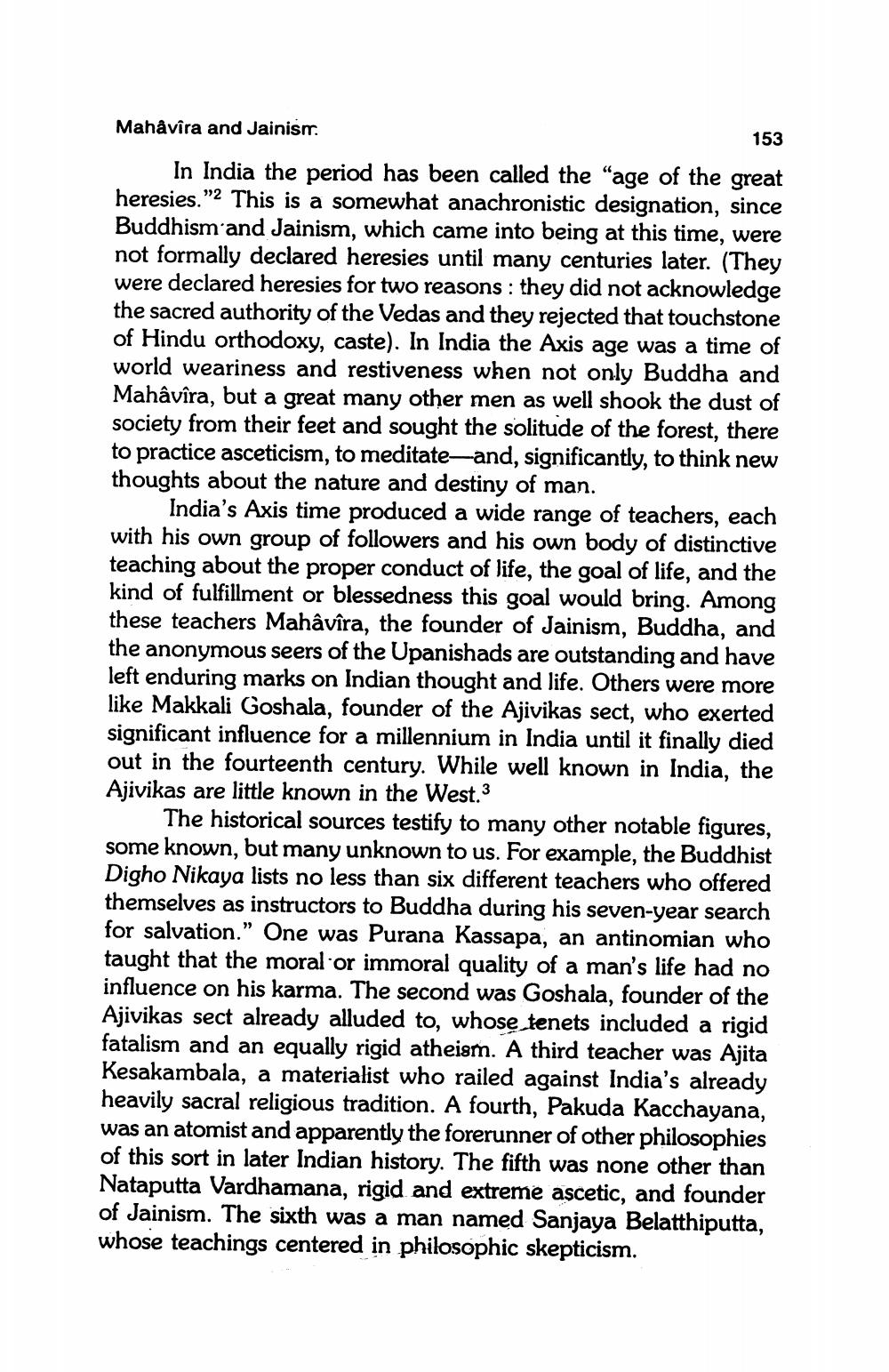________________
Mahavira and Jainism.
153
In India the period has been called the "age of the great heresies."2 This is a somewhat anachronistic designation, since Buddhism and Jainism, which came into being at this time, were not formally declared heresies until many centuries later. (They were declared heresies for two reasons: they did not acknowledge the sacred authority of the Vedas and they rejected that touchstone of Hindu orthodoxy, caste). In India the Axis age was a time of world weariness and restiveness when not only Buddha and Mahâvîra, but a great many other men as well shook the dust of society from their feet and sought the solitude of the forest, there to practice asceticism, to meditate—and, significantly, to think new thoughts about the nature and destiny of man.
India's Axis time produced a wide range of teachers, each with his own group of followers and his own body of distinctive teaching about the proper conduct of life, the goal of life, and the kind of fulfillment or blessedness this goal would bring. Among these teachers Mahâvîra, the founder of Jainism, Buddha, and the anonymous seers of the Upanishads are outstanding and have left enduring marks on Indian thought and life. Others were more like Makkali Goshala, founder of the Ajivikas sect, who exerted significant influence for a millennium in India until it finally died out in the fourteenth century. While well known in India, the Ajivikas are little known in the West.3
The historical sources testify to many other notable figures, some known, but many unknown to us. For example, the Buddhist Digho Nikaya lists no less than six different teachers who offered themselves as instructors to Buddha during his seven-year search for salvation." One was Purana Kassapa, an antinomian who taught that the moral or immoral quality of a man's life had no influence on his karma. The second was Goshala, founder of the Ajivikas sect already alluded to, whose tenets included a rigid fatalism and an equally rigid atheism. A third teacher was Ajita Kesakambala, a materialist who railed against India's already heavily sacral religious tradition. A fourth, Pakuda Kacchayana, was an atomist and apparently the forerunner of other philosophies of this sort in later Indian history. The fifth was none other than Nataputta Vardhamana, rigid and extreme ascetic, and founder of Jainism. The sixth was a man named Sanjaya Belatthiputta, whose teachings centered in philosophic skepticism.




